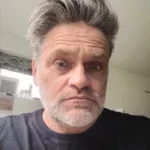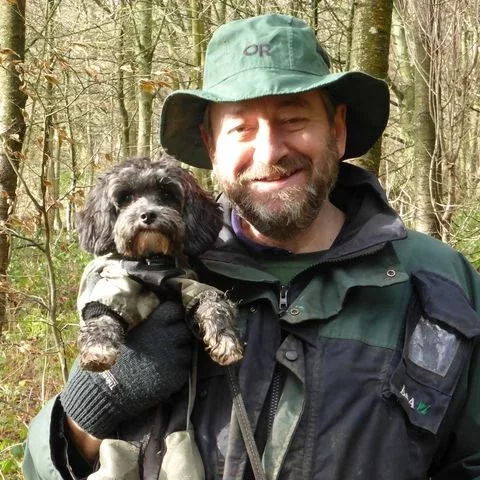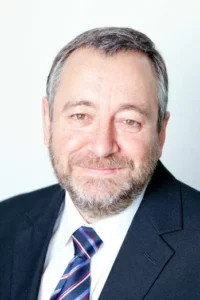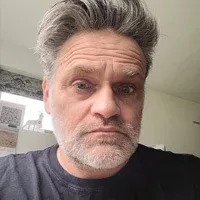Ahead of his funeral in Aberystwyth this afternoon, Highways News is paying further tribute to Richard Harris with two more contributions from former colleagues. Ian Catling was responsible for introducing Richard to the ITS sector 36 years ago; and Prof Charles Musselwhite worked with him on what turned out to be his final ITS project. Both pay fitting tribute by bookending Rich’s long and varied career.
Ian Catling: Although I knew of course about Rich’s serious illness and that in the last few weeks he was undergoing end-of-life care, it was still devastating news to hear of his death last week.
Rich and I worked together as the closest of friends and colleagues for over a decade – he started at ICC as my ‘right-hand man’ but he quickly became a principal consultant and in many of the projects that he led our roles were reversed and I became his assistant.
I have so many wonderful memories of Rich. He was always such fun to work with and to be with. I well remember the first time I met him. I think it was during the summer of 1988, at an AA office somewhere west of London (Slough, Staines? Definitely not the AA’s headquarters at Basingstoke, although we later had many meetings there); it was quite a big meeting on Autoguide, which we were developing as the prospects of in-vehicle route guidance systems became a realistic possibility (this was some time before the launch of the Navstar satellites which formed the basis of the GPS satellite positioning system – before these became operational in the mid-90s in-vehicle navigation systems relied on dead reckoning and map-matching).
Rich was there in his role as a top manager in the AA’s “Home Routes” department, which produced and dispatched to members thousands of route itineraries. Initially these had been based on paper maps and card index filing systems, but Rich had been heavily involved in their computerisation. Rich was dynamic and perceptive, and he saw how the emerging technologies would transform the future of driving. He approached me after the Autoguide meeting and said he was really interested in being more involved in the project. He and I worked together for the next year on the Autoguide pilot in London – implementing it, testing it – often late into the night – and then demonstrating it, and it became clear to us both that as we worked together so well we could continue with him joining ICC, which he did on 1st January 1990.
By this time we had both been working with the European Commission on the start of the ‘DRIVE’ programme of collaborative research, and Rich took to European projects as if they were invented for him: he understood the objectives of the various projects in which we were involved, and also took to the people involved in them: his wit and ability to get on with people were enduring qualities which stayed with him and strengthened throughout his career.
We always worked together really well from the outset, especially when we had to travel together to our many meetings in mainland Europe, For many of these meetings we would drive rather than fly – often in vehicles which would form part of the project which would then be demonstrated. We worked together in Berlin, where with the Autoguide team we demonstrated route guidance in the two Rovers we’d already used in London. Later we were the leaders of the ‘SOCRATES’ projects, which incorporated real-time traffic information into route guidance for the first time, and a highlight of these was the G7 technology showcase in 1995 in Brussels, where Rich coordinated the “Smart Vehicle “ demonstrations and showed what was possible with navigation systems to many of the great and good (and possibly not so good).
Other European projects we worked on together included LLAMD (which once involved us driving from London to Munich overnight in time for an early morning project meeting – ah, the days before Zoom and Teams!), CARTRIDGE, HARPIST and many other interesting acronyms.
Together we were members of the ‘Waterloo’ group (named after not the railway station, or the battle, but the pub near the Transport Research Laboratory where it first met) which was the genesis of RTI Focus, later to become ITS UK, in which Rich played a leading role as its international director.
During the more than a decade that he was with ICC Rich’s love of travel grew and he was soon making presentations much further afield than just Western Europe – he was making an impression to audiences in, inter alia, the States, Japan and Taiwan. In Europe, whenever possible he would drive rather than fly, and his interest in visiting different countries, and getting on with the residents, stretched at one point to him planning a route, I think to Greece, taking in as many countries as possible: he managed eight in the one-way trip, including Luxembourg and Lichtenstein!
After he left ICC in the early 2000s he became more and more well-known and respected throughout the ITS community around the world, and the many tributes that have been pouring in about him are testament to how much people liked and admired him. Rich was perceptive, amiable, unflappable, conscientious, hard-working, and professional; he had that special spark which endeared him to those he worked with and makes his loss so difficult to come to terms with. He was a true friend and my heart goes out to his wife Jane – who worked for ICC for longer than Rich did – and to their two sons, Tom and Lloyd.
Prof Charles Musselwhite: I first met Richard Harris in Cannes, France at the SAFE Highways Conference in January 2001 as a rather green PhD student in my first year of study. I attended on my own, knew no one there and was nervous beyond belief. Richard was the first person I met, welcoming and warm chatting away to me as if I was an old friend of the ITS scene, treating me no differently to anyone else who was there. Within the first hour, I was invited out to dinner!
This was very Richard, he connected people from different disciplines, different backgrounds and different specialisms treating everyone with the same respect. It was exactly what the burgeoning ITS community needed at the time, someone to bring people together. He was involved in many projects himself but his legacy lives beyond these as some he didn’t get involved with he had initiated, or some of the thinking around them he had inspired.
I had the pleasure of Richard popping up all over my career. I remember a hilarious presentation he gave at the World Roads Association Annual Conference at the Copthorne Hotel in Birmingham in 2010 where he finished with a clip from ITV’s This Morning presenters at the time, Richard and Judy, waving and saying, “Bye, see you all tomorrow”, highlighting that technology, just like Richard and Judy, looks like it knows you and may even look like it looks forward to seeing you but of course doesn’t! That was Richard, humble, grounded, reminding us to not get over wowed by technology. A theme that has influenced research in my own career.
He recently supported my new Research Centre at Aberystwyth University, The Centre for Transport and Mobility, as he had retired to live nearby. He immediately wanted to help and get people together to support the work – retirement Richard style! A true networker, before it became a buzz word, a funny, inspirational communicator and a humble innovator in the ITS sector, he will be missed by myself and many in the community. Many condolences to Jane and family.


















